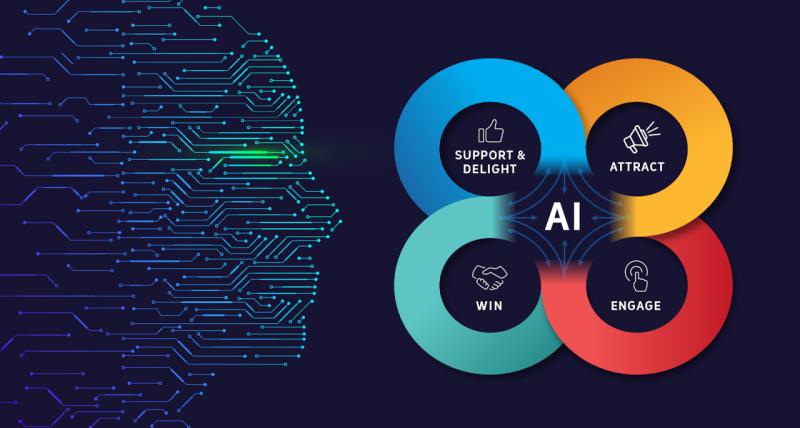In 2025 and beyond, AI technologies like ChatGPT are set to revolutionize marketing in profound ways, transforming how brands communicate, engage, and build relationships with their customers. The impact will be seen across various aspects of marketing, from customer service and personalization to content creation and data analysis. Here’s a look at how ChatGPT and similar AI tools will shape the future of marketing.
1. Hyper-Personalized Customer Experiences
One of the most significant advantages AI brings to marketing is its ability to create highly personalized experiences at scale. AI algorithms can analyze vast amounts of data in real-time, including customer preferences, behaviors, and interactions. ChatGPT and other AI tools can then use these insights to tailor communications on an individual level. This might mean personalized product recommendations, custom email messaging, or unique website experiences for every user. Hyper-personalization helps brands build deeper connections with their customers, boosting engagement, retention, and loyalty.
2. Conversational Marketing and AI Chatbots
Conversational marketing will continue to grow, with ChatGPT-like models playing a crucial role. As chatbots become increasingly sophisticated, they’ll be able to handle more complex interactions, delivering fast, relevant responses and guiding customers through their journey with a brand. Unlike traditional chatbots, which rely on pre-scripted responses, AI chatbots powered by large language models can hold dynamic, contextual conversations that feel more human-like. This approach will help businesses provide around-the-clock support, increasing customer satisfaction while reducing response times and operational costs.
3. Enhanced Content Creation and SEO Optimization
Content remains central to effective marketing strategies, and AI can supercharge this area. With tools like ChatGPT, marketers can quickly generate high-quality content, from blog posts to social media updates, with minimal input. These AI tools can optimize content for search engines by incorporating relevant keywords and adapting to SEO best practices, thus improving a brand's visibility. AI-generated content will also enable marketers to respond rapidly to trends, creating timely, engaging posts that keep their brand relevant and responsive to audience interests.
4. Data-Driven Decision Making
AI’s ability to process and analyze vast datasets will transform marketing strategies, making them more data-driven and outcome-focused. AI-powered analytics tools can provide deep insights into customer behavior and predict future trends, enabling marketers to make informed decisions faster. For example, predictive analytics can help brands anticipate customer needs, plan inventory, and optimize pricing strategies. By leveraging AI insights, marketers can fine-tune their campaigns in real time, driving better results and maximizing ROI.
5. Efficient A/B Testing and Campaign Optimization
In 2025, marketers will no longer need to rely solely on traditional A/B testing. AI can automate the process, testing numerous variations of an ad or landing page simultaneously and selecting the highest-performing options. AI tools like ChatGPT can also generate new copy or creative concepts on the fly, allowing marketers to adapt quickly to audience preferences. This level of efficiency and flexibility ensures campaigns are continuously optimized, delivering higher engagement and conversion rates.
6. Ethics and Transparency in AI Marketing
As AI becomes more integrated into marketing, ethical considerations will grow in importance. Ensuring transparency around AI-driven decisions, respecting user privacy, and minimizing bias in AI models will be critical for maintaining consumer trust. Responsible AI usage will be essential for brands looking to build long-lasting relationships with their customers.
Conclusion
ChatGPT and AI are positioned to reshape marketing, providing unprecedented levels of personalization, efficiency, and insight. By automating repetitive tasks, delivering real-time insights, and enhancing customer interactions, AI will empower marketers to focus on strategic, creative tasks that drive innovation. For businesses ready to embrace these changes, the future of marketing in 2025 and beyond looks not only promising but transformational.
Customer Experience


Comments